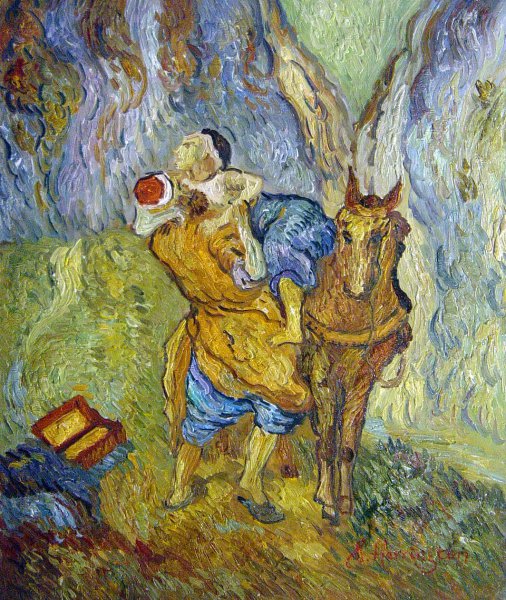Complete Sermon ->Trinity 13 -
5. This lawyer was perhaps a wise man and well acquainted with the Scriptures, as his answer also suggests; yet here he becomes a fool, and must first begin to learn from the Lord, when he is put to shame and disgrace. For Christ teaches him a good lesson, and with one word takes out of him all his self-conceit. For he was in the delusion that he had kept the law wholly and perfectly, and was therefore something extra, above others, which undoubtedly he was, and imagined, because he was so pious and learned, that he was of course worthy to talk with the Lord. But now what does the Lord do to ensnare him in a masterly manner? He does this: he permits him to judge himself. For the Evangelist proceeds thus: “And he said unto him, What is written in the law? how readest thou? And he answering said: Thou shalt love the Lord thy God with all thy heart, and with all thy soul, and with all thy strength, and with all thy mind; and thy neighbor as thyself. And he said unto him, Thou hast answered right: this do, and thou shalt live.”
6. I think the Lord gave this pious man a good lecture. Alas, it was not right, he should have spared him a little, he puts him to shame before all the world. For what good does it do him? Christ shows him that he has as yet done nothing, when he allowed himself to think he had done everything.
He asks what he should do. I contend that he has enough to do now, if he is only able to do great things.
7. Now much might be said on these two commandments, and it is also really needed, had we the time, for these are the highest and greatest themes on which Moses wrote; yea, on these hang all the law and the prophets, as Christ himself says in Matthew 22:40. Nevertheless, we will briefly consider some phases of them.
8. When we examine the laws of Moses, we find they all treat of love. For the commandment: “Thou shalt have no other Gods before me,” I cannot explain or interpret otherwise than: Thou shalt love God alone. Thus Moses himself interprets it in Deuteronomy 6:4-5, where he says: “Hear, O Israel; Jehovah our God is one Jehovah; and thou shalt love Jehovah thy God with all thy heart, and with all thy soul, and with all thy might.” From this passage the lawyer has taken his answer. But the Jews understand this law to mean no more than that they should not set up idols and images to worship, and when they could say and confess with their lips that they have only one God and honor no other gods, they think they have kept this commandment. Thus this lawyer also understood it, but it was a false, erroneous knowledge of the law.
9. Now we must have high regard for the law. It says: “Thou shalt have no other gods before me.” Thou, thou, it says, thou, and everything thou art; and especially does it mean the heart, the soul and all thy powers. It does not speak of the tongue, or the hands, or the knees; but it speaks of the whole body, and of all thou hast and art. If I am to have no other God, then I must surely possess the only true God with my heart, that is, I must in my heart be affectionate to him, evermore cleave to him, depend upon him, trust him, have my desire, love and joy in him, and always think of him. Just as we say at other times when we delight in something, that it tastes good in our very heart. And when one speaks or laughs and is not in earnest, and does not mean it from his heart, we say: You laugh, and your heart is not in it. The heart is quite a different thing than the lips. Therefore in the Scriptures the heart signifies the great and ardent love we should have for God. Those who serve God only with their lips, with their hands or with their knees, are hypocrites, and God cares nothing for them. For God does not want only a part, on the contrary he wants the whole man.

